OpenSciencLabs are JupyterHubs running on Kubernetes clusters in the cloud. When a user starts a server, they are assigned a compute pod running JupyterLab on the cluster, their perisitent storage volume is mounted, and a script runs to help prepare their environment.
Depending on the lab, users typically have access to multiple server profiles, designed to suit the needs of a given workflow. Cloud computing is expensive, so it important to select a server that is powerful enough while avoiding an oversized, wasteful configuration.
What happens when a server is started?¶
When a user starts a server, they are assigned a compute pod on a node in the lab’s Kubernetes cluster. A Docker container runs JupyterLab on the pod and the user’s volume is mounted. Next, a shell script runs making some final adjustments to the environment and updating any lab-provided Jupyter Notebook repositories with the notebook repository synching tool, nbgitpuller. Finally, the user accesses their server and Jupyter Lab instance via a web browser.
How to Start and Stop a Server¶
Starting a Server¶
- Sign into OpenScienceLab and click the “Go to lab” button on the card of the lab you wish to start.
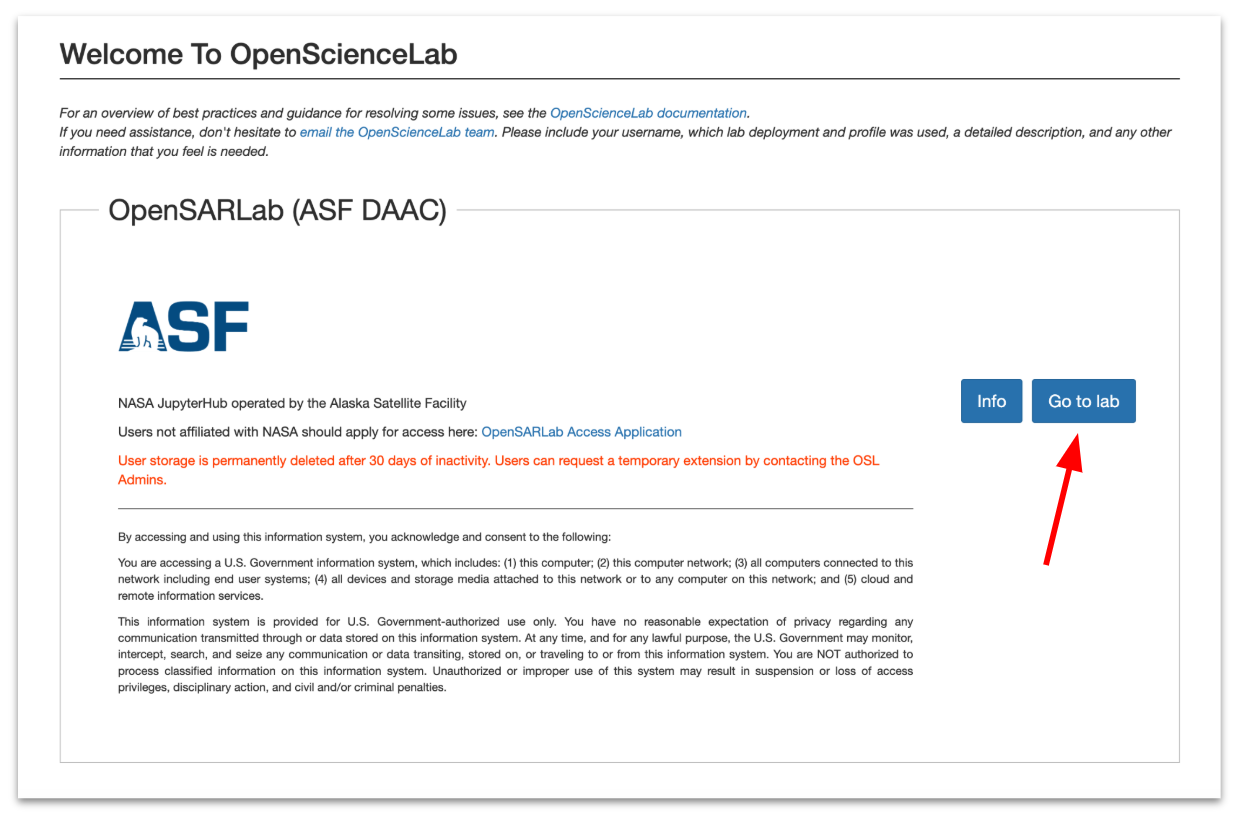
The OpenScienceLab Portal provides access to users’ labs. In this example, there is only one lab available, but users will see lab cards for any labs to which they have access.
- Click the
Start My Serverbutton.

- On the Server Options page, select the radio button of the server profile you wish to use and click the
Startbutton.
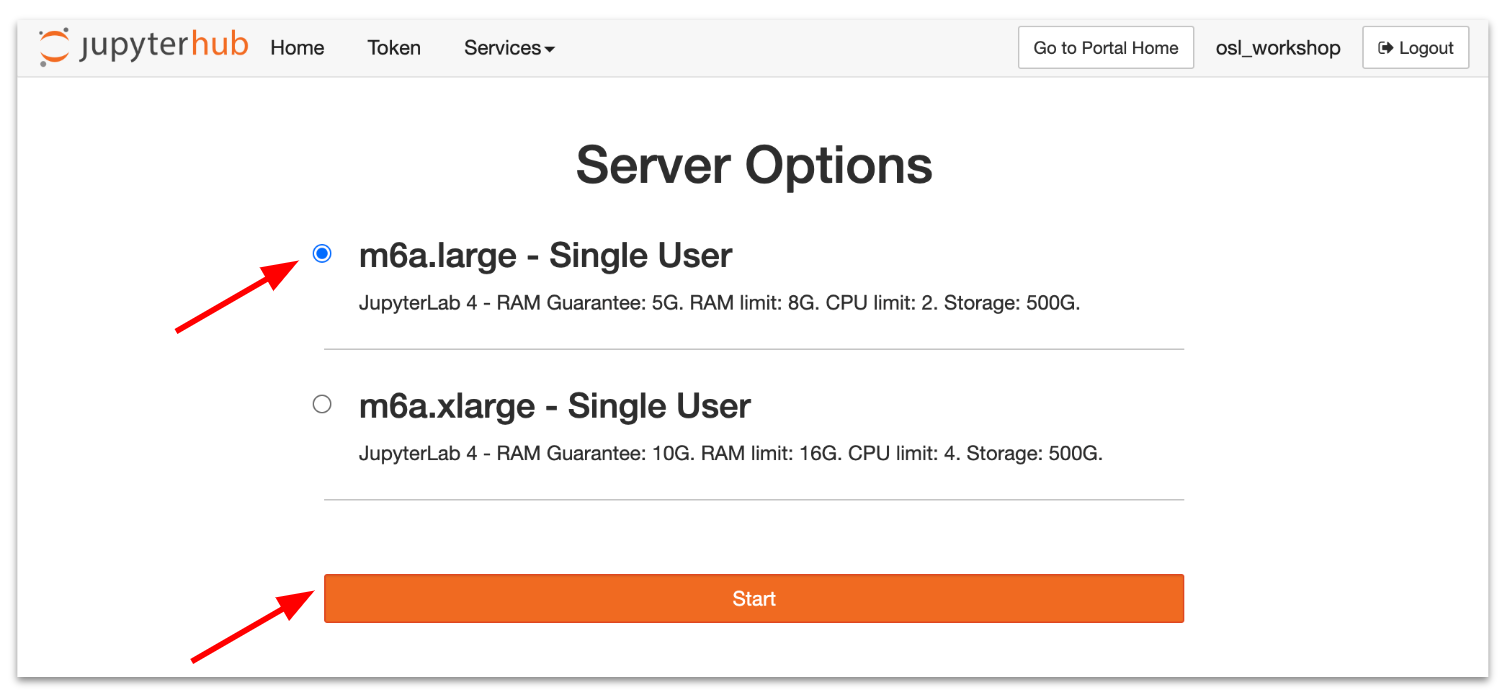
- A status screen will load while your server starts.

- You can click on “Event Log” to display the system logs as your server starts.
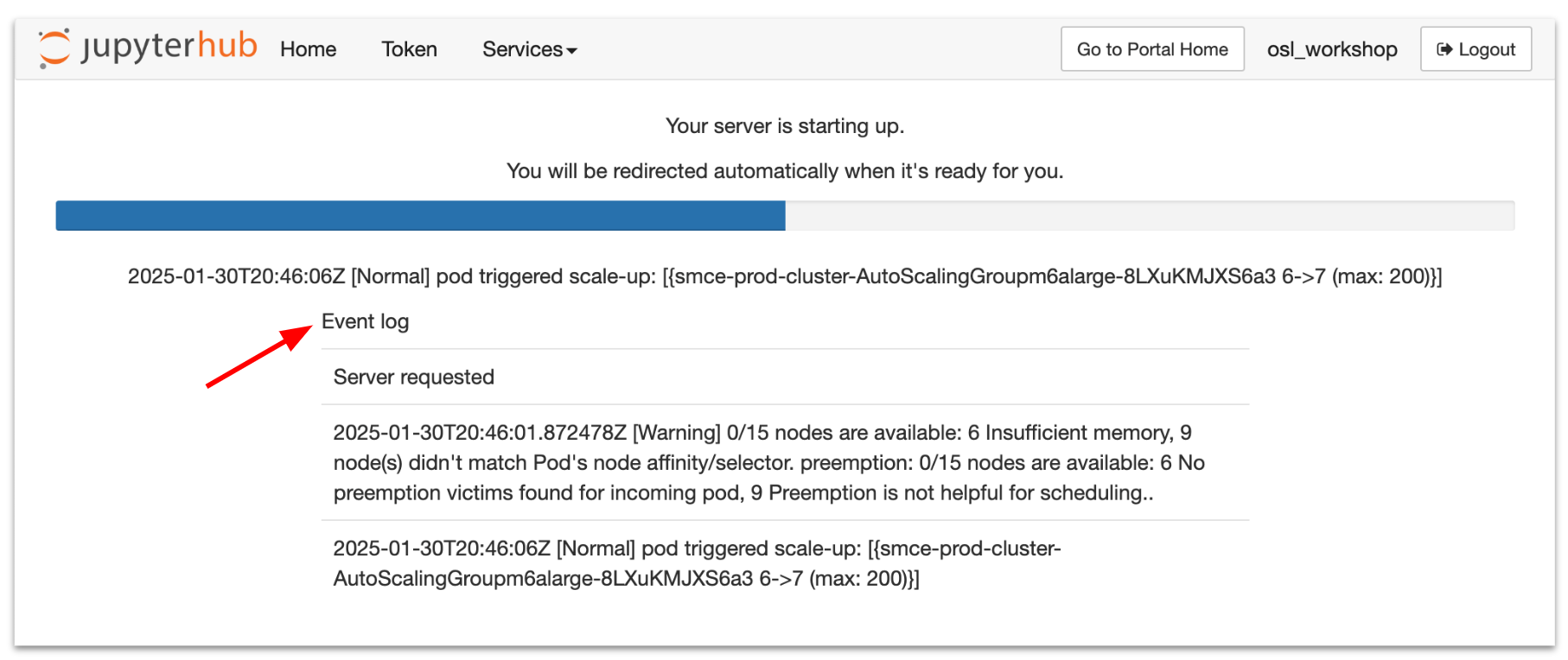
- It may take several minutes for a server to start. When it has started, you will have access to a JupyterLab desktop.
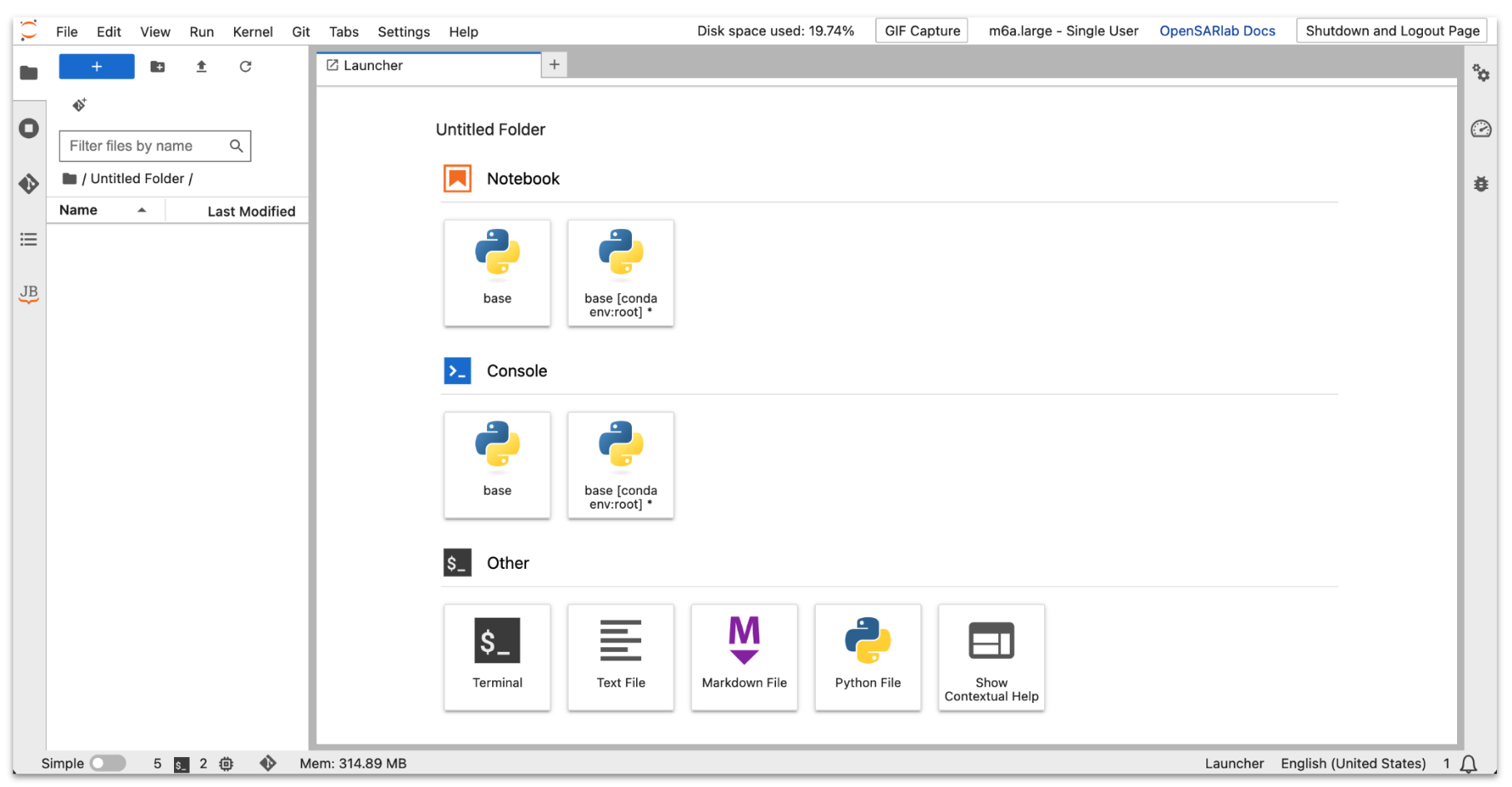
The JupyterLab desktop loads when your server has started. Depending on the specific lab, you may have access to varying notebook kernels and JupyterLab extensions.
Stopping a Server¶
- Select
Hub Control Panelfrom theFilemenu
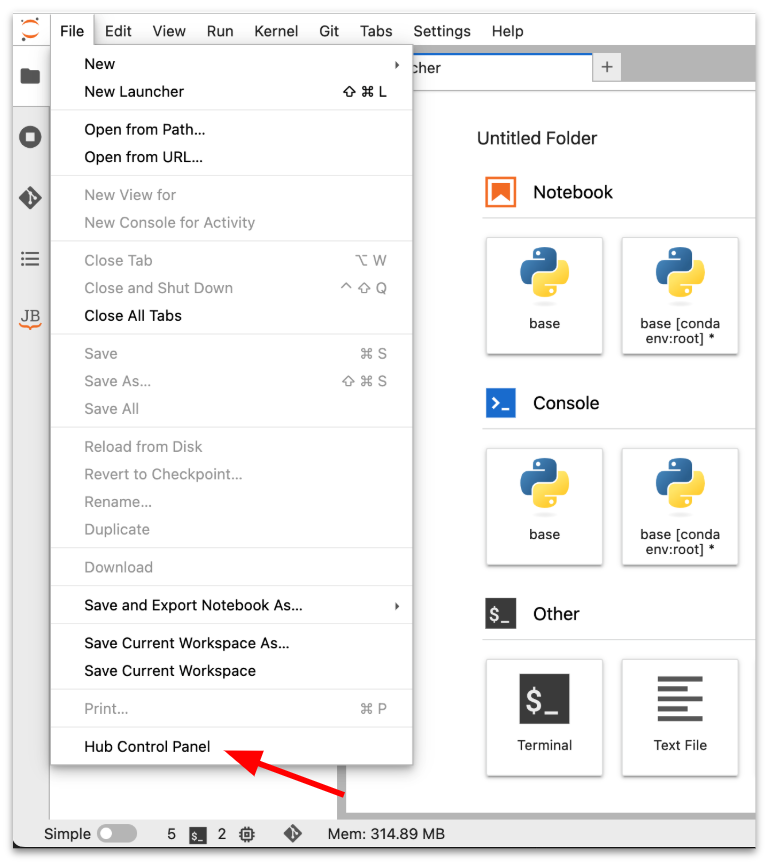
or
Click the Shutdown and Logout Page button at the top right of the JupyterLab desktop

- Click the
Stop My ServerButton
